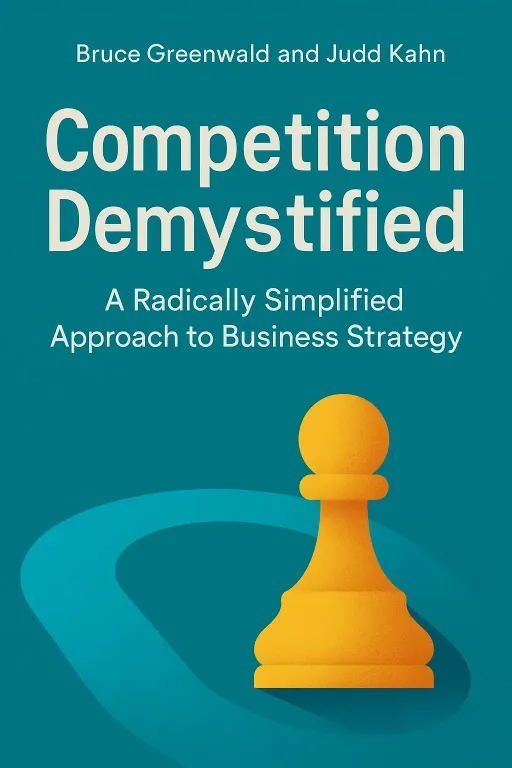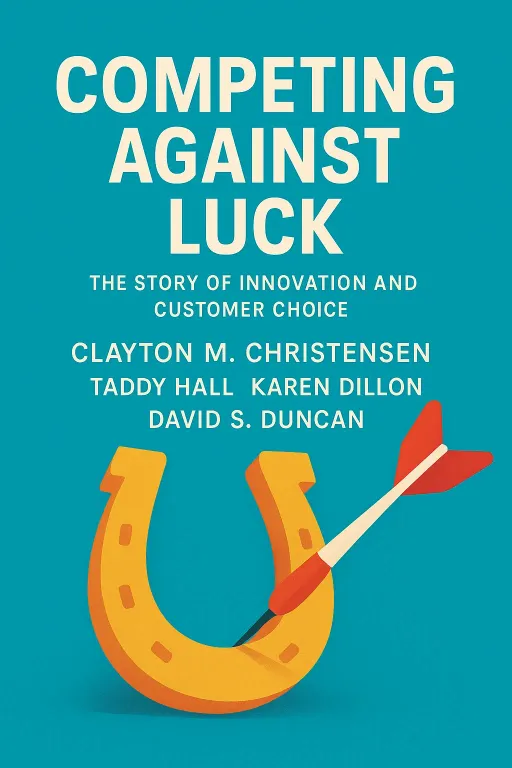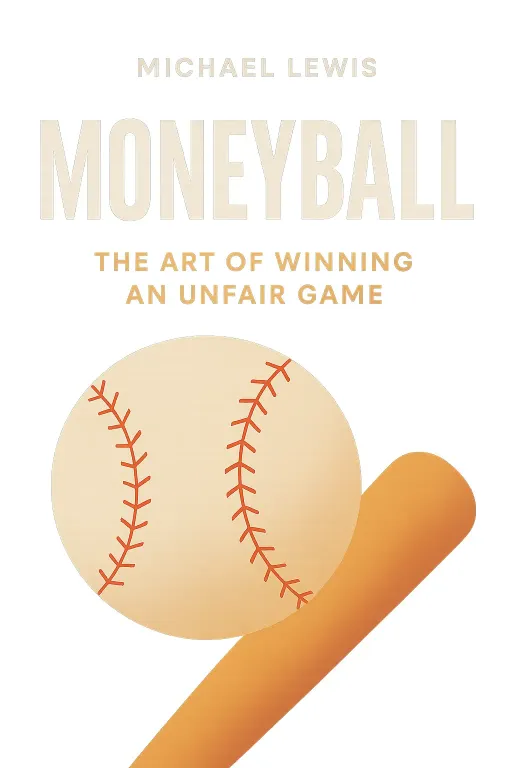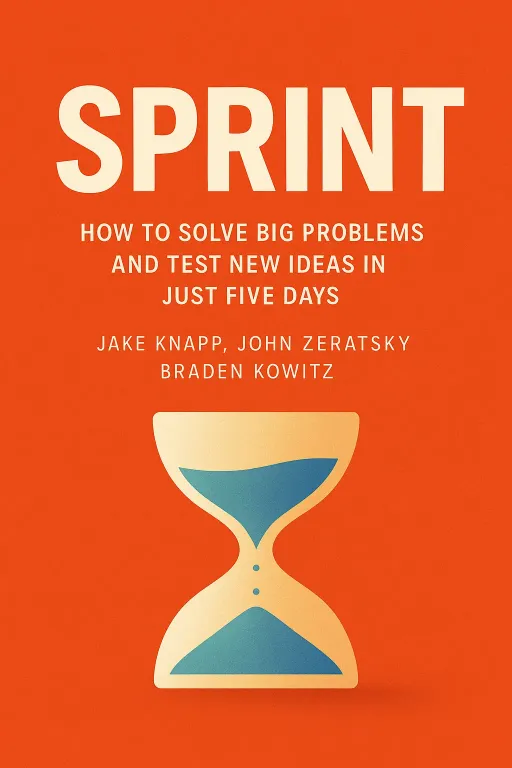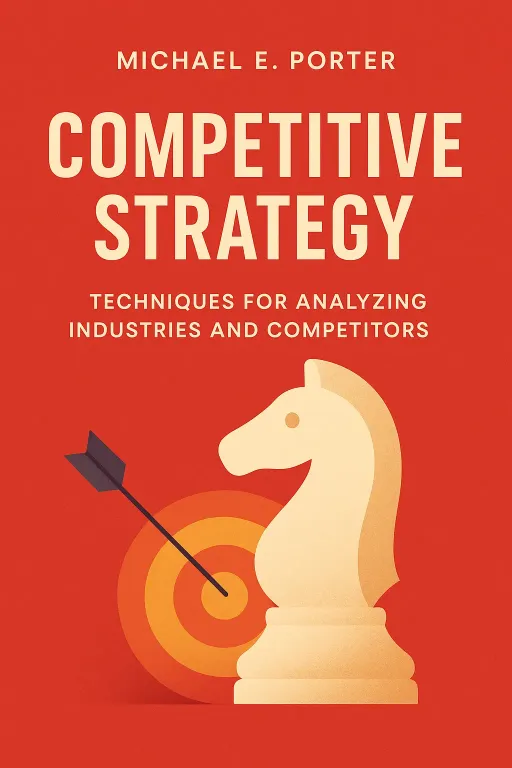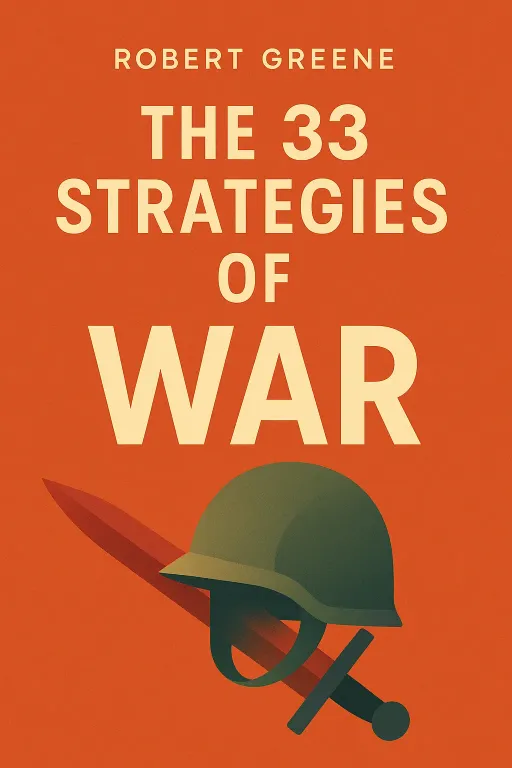
Zen Masters & Trojan Horses
11 minGolden Hook & Introduction
SECTION
Joe: Alright Lewis, I’m putting you on the spot. Robert Greene’s The 33 Strategies of War. What’s the first thing that comes to mind? Lewis: Honestly? It sounds like the kind of book a Bond villain reads on his yacht right before he explains his entire evil plan. Probably while stroking a white cat. Joe: (Laughs) That is the exact reputation it has! And you’re not entirely wrong. But that’s what makes it so fascinating. Today we are diving into The 33 Strategies of War by Robert Greene. And the reason it feels so epic, so almost mythological, is because Greene himself is steeped in that world. His background is in classical studies. Lewis: Ah, so that explains all the Greek gods and Roman generals I’m guessing are in there. It’s not just modern corporate backstabbing. Joe: Exactly. He’s not a general or a CEO. He’s a scholar of human nature who worked about 50 different jobs before becoming a writer. He’s pulling from Napoleon, Sun-tzu, and even the goddess Athena to distill these timeless principles of conflict. He argues that life itself is a kind of warfare, whether we like it or not. Lewis: Okay, but 'war'? That sounds incredibly intense for my Tuesday morning meeting. Where does a person even start with something so huge? Joe: That’s the perfect question, because it’s exactly where Greene starts. And his answer is surprising. He says before you can even think about an enemy across the table, you have to deal with the one between your ears.
The First War: Conquering the Enemy Within
SECTION
Lewis: The enemy in my head? On most days, that’s a formidable opponent. It’s mostly worried about unanswered emails and whether I left the oven on. Joe: Greene would say that’s precisely the battlefield. He calls the first part of the book "Self-Directed Warfare." The core idea is that your mind is the starting point of all strategy. If your mind is clouded by emotion, stuck in the past, or easily panicked, any plan you make is doomed from the start. Your own weaknesses will defeat you before your rival even makes a move. Lewis: I can see that. It’s like trying to play chess when you’re hangry. You’re not making good decisions. You’re just trading your queen for a sandwich. Joe: A perfect analogy. Greene emphasizes this idea of "presence of mind." He tells this incredible story about the British admiral, Lord Nelson, one of history's greatest naval commanders. Nelson was famous for his calm in the absolute eye of the storm. Lewis: I’m picturing cannonballs, splintering wood, chaos everywhere. Joe: Total chaos. During the Battle of Copenhagen, one of his most famous victories, Nelson was on the deck of his ship, surrounded by smoke, explosions, and the screams of his men. His second-in-command was in a state of panic, signaling for a retreat. The situation looked hopeless. But Nelson, in that moment of extreme pressure, famously put the telescope to his blind eye and said, "I really do not see the signal." Lewis: Wow. That’s some next-level denial. Or just incredible nerve. Joe: It’s nerve, but it was trained nerve. Greene’s point is that Nelson wasn't born that way. He deliberately cultivated this ability. Early in his career, he was terrified of combat. But he forced himself to face it, again and again. He learned to detach his mind from the immediate chaos. By staying calm, he could see the bigger picture. He noticed the Danish line was weakening in one spot, a detail his panicked subordinate completely missed. He ignored the retreat signal, pressed the attack, and secured a massive victory. His presence of mind turned a potential disaster into a triumph. Lewis: That’s a great story for a naval admiral, but how does a regular person develop 'presence of mind' without, you know, having to command a fleet under fire? I lose my presence of mind when I can’t find my keys. Joe: Greene’s advice is surprisingly practical. He says you have to expose yourself to low-stakes conflict and adversity. Don't shy away from difficult conversations. Volunteer for a project that intimidates you. Learn to sit with discomfort. Each time you navigate a small, stressful situation without losing your cool, you’re strengthening that mental muscle. You’re training yourself to not get emotionally hijacked. Lewis: So it’s like emotional weightlifting. You don’t start by bench-pressing 400 pounds. You start with the small stuff, like successfully assembling a piece of IKEA furniture without having a complete meltdown. Joe: Exactly! That’s a modern death-ground strategy right there. If you can survive that, you can handle a tough negotiation. The principle is the same: the more you familiarize yourself with the feeling of pressure, the less power it has over you. You stop fighting the last war—the last argument, the last failure—and start reacting to what’s actually in front of you. Lewis: That makes sense. You’re clearing the fog from your own mind so you can see the landscape clearly. But what happens once you’ve done that? What do you see on the other side of the battlefield? Joe: Well, once you've started to get your inner world in order, Greene argues you have to face the outer world. And that's where things get... complicated. And a little dirty.
The Shadow War: Winning with Unconventional (and 'Dirty') Tactics
SECTION
Lewis: A little dirty? Okay, now we’re getting to the Bond villain part of the book. I’m ready. Joe: We are. The entire final section of the book is called "Unconventional (Dirty) Warfare." And this is where Greene becomes really controversial, and why the book gets such a polarizing reception. He basically argues that we are taught to be fair, to cooperate, and to follow the rules. But the real world, whether in politics, business, or even social circles, often operates like a dirty war. Lewis: What does he mean by "dirty war"? Are we talking about actual espionage? Joe: Sometimes it can be that extreme, but he’s usually talking about something more subtle. It’s about deception, manipulation, and psychological games. It’s the coworker who seems to be your friend but is quietly sabotaging your project. It’s the political campaign that uses misperception and moral attacks to undermine an opponent. The classic, ancient example he would point to is the Trojan Horse. Lewis: Ah, the original "It's a gift! No, wait..." strategy. Joe: Precisely. The Greeks had been fighting a conventional war against Troy for ten years. They couldn’t breach the walls. Brute force failed. So Odysseus, the master strategist, changes the game entirely. He doesn't try to knock the door down; he gets the Trojans to open it themselves. He builds this beautiful, awe-inspiring offering to the gods, a symbol of peace, and fills it with death. It’s a masterpiece of misperception. He plays on their expectations, their piety, and their desire for the war to be over. Lewis: And they fall for it completely. They drag their own doom right into the heart of their city. Joe: And that’s the essence of unconventional warfare. It works outside the enemy's experience. The Trojans were prepared for another assault, another siege. They were not prepared for a psychological trap disguised as a gift. Greene’s point is that these tactics are all around us today, just in different forms. Lewis: Hold on, is he actually telling people to be deceptive? To build their own Trojan Horses at the office? This sounds like why the book gets a reputation for being manipulative and cynical. Joe: This is the critical point of debate. And Lewis, you’ve hit on why many readers find his work so unsettling. Greene’s perspective is brutally pragmatic. He quotes the ancient Roman proverb, "Let him who wants peace prepare for war." He argues that to try and stay clean and moral when your opponent is fighting dirty is to guarantee your own defeat. His primary argument is defensive: you must understand these strategies to recognize when they are being used against you. Lewis: Okay, so it’s more about self-defense. Recognizing the passive-aggressive email for what it is—a strategic maneuver, not just a simple oversight. Joe: Exactly. It’s about recognizing when someone is occupying the moral high ground to make you look bad, or when an organization is using "controlled chaos" to burn out its employees. However, he does go a step further. He suggests that there are times when, to achieve a greater good or simply to survive, you have to be willing to fight fire with fire. He tells the story of Mahatma Gandhi. Lewis: Gandhi? He seems like the total opposite of "dirty" warfare. Joe: That’s what’s so brilliant about the example. We see Gandhi as a peaceful saint, but Greene frames him as one of the most cunning strategists in history. Gandhi knew a violent rebellion against the British Empire was suicide. So he waged an unconventional war. His non-violence was incredibly aggressive and strategic. The salt march, the boycotts—these were designed to disrupt the British administration and economy, to make India ungovernable. He was, in his own way, destroying them from within, using morality as his ultimate weapon. Lewis: So he occupied the moral high ground so completely that any British aggression against him made them look like monsters to the rest of the world. That’s a powerful kind of jujitsu. Joe: It’s the ultimate strategic jujitsu. He turned their strength—their military power—into a weakness. Greene’s point is that strategy isn’t good or evil; it’s a tool. And in a world full of conflict, ignoring the existence of that tool, especially its sharper edges, is a form of naivete that can be incredibly dangerous.
Synthesis & Takeaways
SECTION
Lewis: It’s fascinating how the book seems to hold two completely opposite ideas at the same time. On one hand, it’s telling you to be like a Zen master—calm, detached, and in control of your own mind. Joe: The Lord Nelson model. Master your inner world first. Lewis: Exactly. But on the other hand, it’s telling you to be like Odysseus—cunning, aware of every deception, and willing to be a little ruthless when you need to be. Joe: And that’s the grand synthesis of the whole book. That’s the tightrope walk of a true strategist. You need both. You need the internal balance of Athena, the goddess of wisdom, so you don't get consumed by your own emotions. But you also need to understand the brutal, chaotic nature of Ares, the god of war, so you aren't destroyed by the world's hidden conflicts. Lewis: It’s like you need to be a philosopher and a spy at the same time. Joe: That’s a perfect way to put it. The ultimate strategy is this blend of inner calm and outer cunning. It's about having the wisdom to know which battles are worth fighting, the self-control to fight them well, and the strategic smarts to recognize when the battle isn't what it seems. It’s about understanding that sometimes the biggest threat is your own impatience, and other times it’s the friendly colleague offering you a beautiful wooden horse. Lewis: It really makes you think. In your own life, which war are you losing more often? The one against your own procrastination and self-doubt, or the one against the person who conveniently 'forgets' to CC you on important emails? Joe: That's the question to take away. It forces you to look at your own life with a strategist's eye. Where are your vulnerabilities? Are they internal or external? And what are you going to do about it? We'd actually love to hear what our listeners think about this. Which side of Greene's strategies resonates more with you—the inner battle or the outer one? Let us know. Lewis: Yeah, I’m genuinely curious. This feels like one of those books that everyone will have a strong reaction to, one way or another. Joe: It absolutely is. It’s not a comfortable read, but it’s a powerful one. It arms you not just with strategies, but with a new way of seeing the world.
